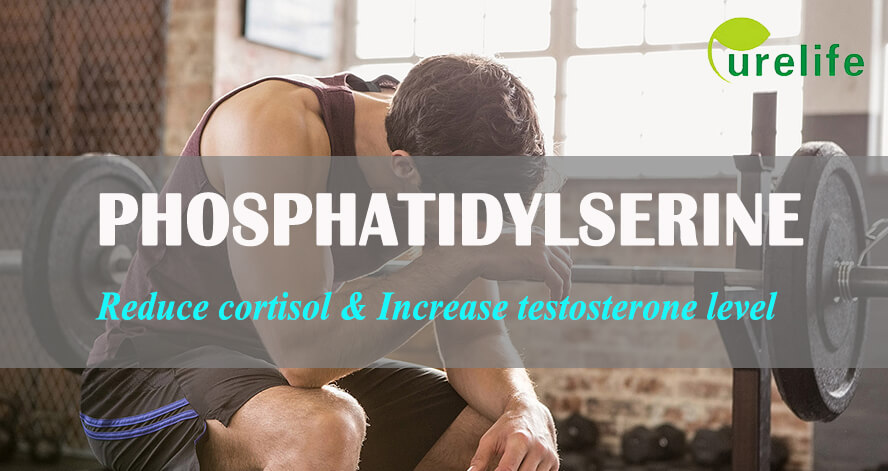Phosphatidyl-Serine is a phospholipid compound derived from sunflower seeds, soy lecithin that plays an essential role in cell membrane composition and intercellular communication. It is a major structural component of neural membranes where it assists in the conduction of electrical impulses and facilitates the activity of neurotransmitters involved in learning, memory, and mood.

Phosphatidyl-Serine (PS) is a regular dietary supplement and is mainly used for brain health, but today, people are finding that more and more sports nutrition companies are using Phosphatidyl-Serine in their formulas too , for muscle building , increasing exercise capacity & performance and so on , let’s explore why PS can boost your muscle and performance .
Phosphatidyl-serine reduces cortisol , increases testosterone
PS can reduce the stress response to exercise and there is reason to believe it may work to enhance muscle energetics and exercise performance. Recent work from researchers in the United Kingdom provides preliminary evidence that PS may provide a performance benefit to athletes. Healthy men were provided either PS (750 mg/day) or placebo for a total of 10 days. An intense exercise test was performed at 85% of maximal oxygen capacity before and after this 10 day supplementation period. The main finding was that the PS group could exercise for 2 minutes longer after supplementation (7:51 to 9:51 min) whereas the placebo group had no change in performance. The exact mechanism explaining this ergogenic effect of PS was not examined but the authors suggest that supplementation could enhance membrane PS content and affect muscle contraction in some manner.
Cortisol is a steroid hormone which is released by the body in response to stress. It increases blood sugar and suppresses the immune system. High and prolonged levels of cortisol can lead to muscle wasting. Testosterone is an important hormone in muscle growth, which can bind receptors on the surface of muscle cells and result in protein synthesis. A research at the University of Mississippi found that phosphatidylserine can decrease levels of released cortisol, meanwhile the production of testosterone can be also increased by supplementing phosphatidylserine.
Also , lower cortisol can reduce the stress response to exercise. Since elevated cortisol levels promote excessive storage of fat, especially in the mid-section, PS may contribute to a lowering of body fat in this region.


